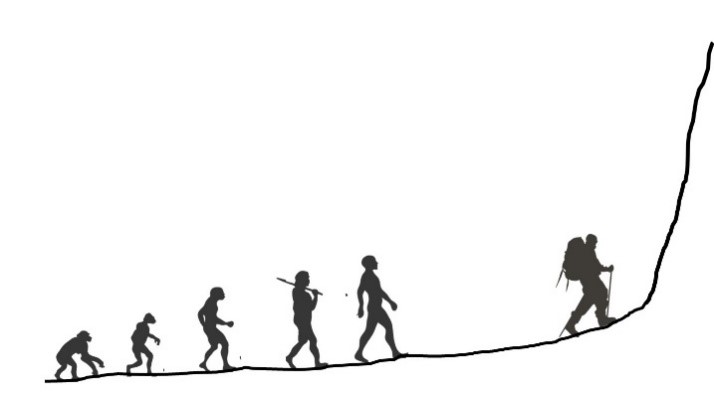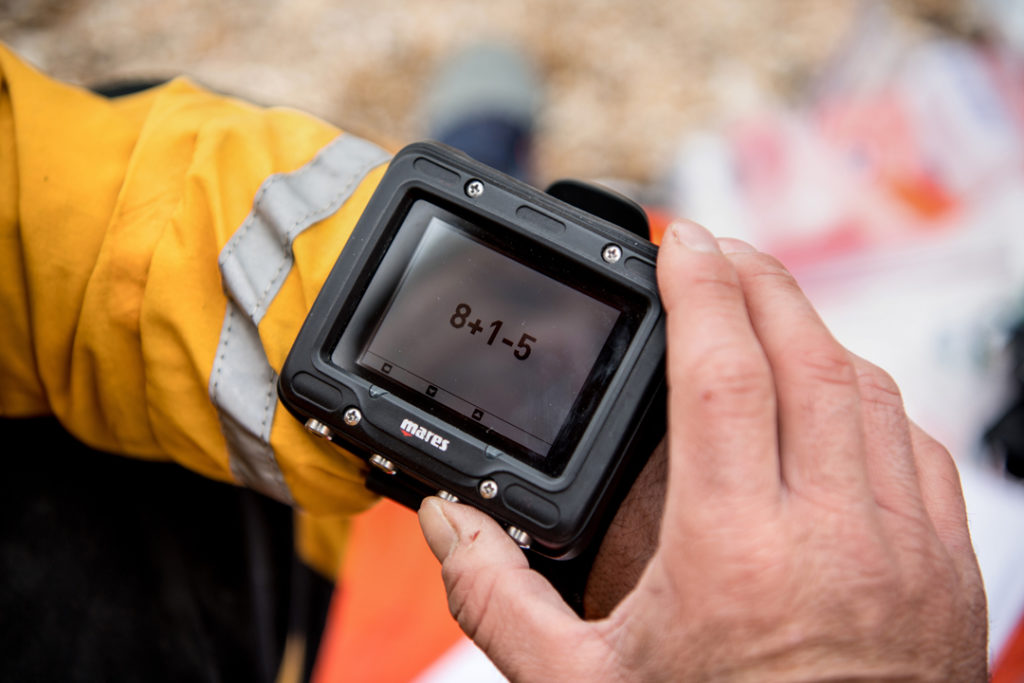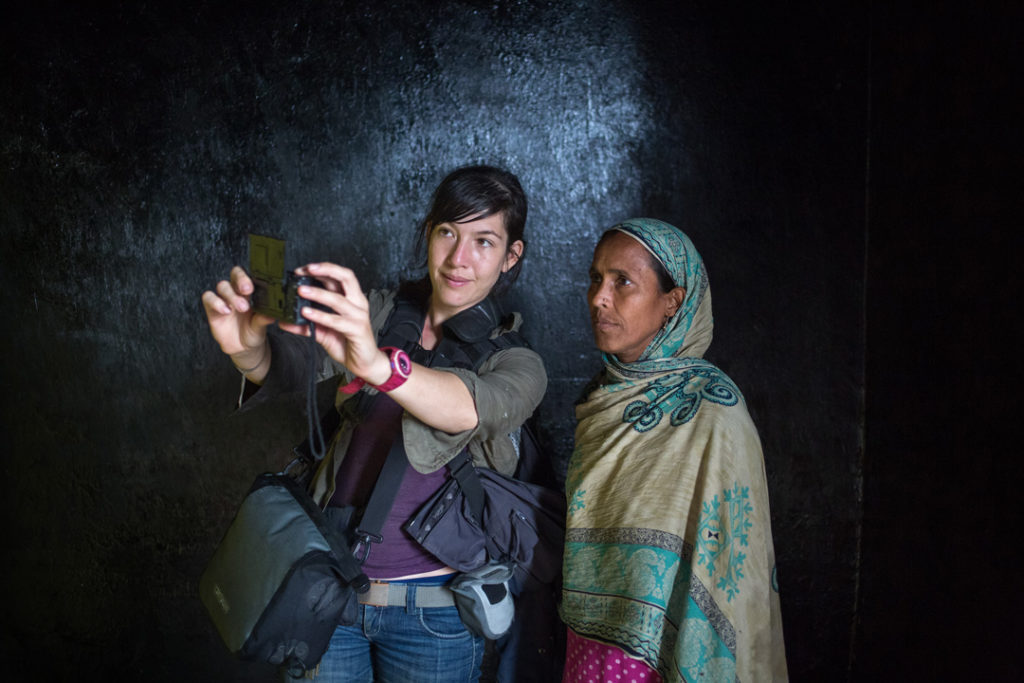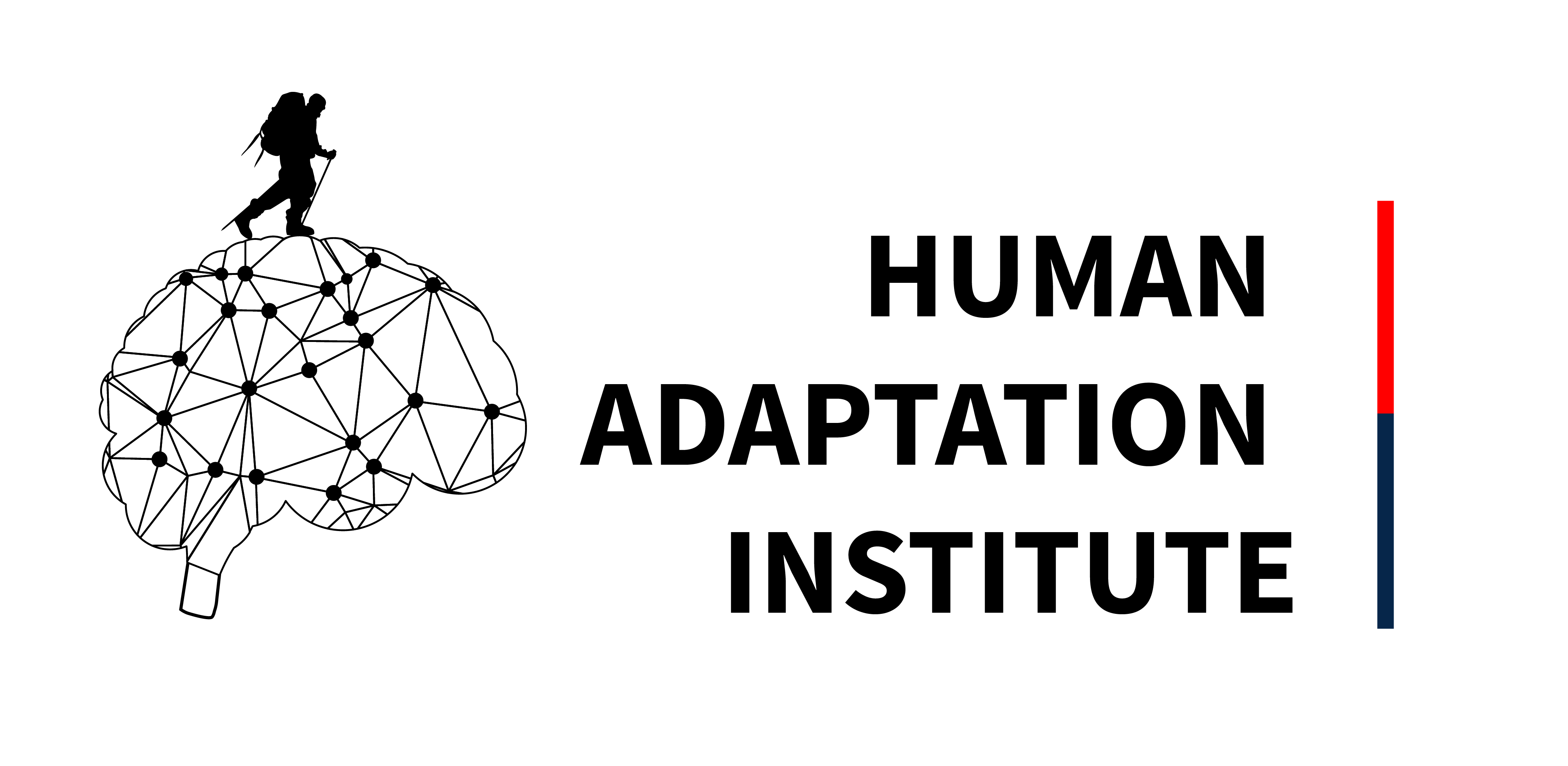____
CURRENT CHALLENGES
For the first time in recorded history, we are facing three major structural changes that are intersecting at the same time. None of them are truly new, but their magnitude and the intertwining of the three, that impact one another, imposes a challenge that no society has ever faced.*
ENVIRONMENTAL IMBALANCE
Which includes global warming, general pollution and more particularly plastics and chemicals, and 2° C rise in temperatures; these are major problems for the planet, and have a significant impact on our bodies and our brains, that are still totally under-evaluated.
We must: change our cognitive paradigms to reduce our impact and adapt to certain changes that are already inevitable.
NEW TECHNOLOGIES
Including among others Artificial “Intelligence,” Big Data, deep learning, or robots and autonomous systems, which are already changing (and will do so more and more) our lifestyles, at a historical unprecedented speed. Other less known techniques, will have a major impact in the future, for example the new genetic manipulation tools (such as CRISPR-cas9), that allow profound modifications to genes, capable of tilting us, over time, into a new evolutionary era.
We must: learn faster and maintain our decision-making capacity, both cognitive and legal, to control these developments, so that these tools remain useful, rather than becoming autonomous systems.
SOCIAL AND POLITICAL TRANSMUTATIONS
Which include demographic changes – 250,000 additional people per day in net data, or 8 billion humans in 2022 compared to 1.7 billion a century ago; Movement toward cities without access to nature- accounting for 60% of these populations living in cities, as opposed to 10% a hundred years ago; social and economic inequalities– more than 11% of the world population is undernourished, one billion people live in slums and at least 2.5 billion do not have basic sanitation for example; political crises with the fallback to extreme political persuasions and other extremes, or the migratory phenomena, which will increase due to global warming.

These three simultaneous structural phenomena, which nourish one another, require us to take serious consideration to our adaptive capacities, as much as to profoundly change our functional and cognitive paradigms, which we must first understand better, in order to act in the most efficient manner.
The changes experienced by a person today are increasing exponentially and have nothing to do with those experienced by our ancestors. Today, a person experiences as much change in one year as in a life-time just a century ago.
* Data from chapter 8 of the book “Explorer Demain” (Explore tomorrow), by Christian Clot, Robert Laffont Editions
____
METHODOLOGY AND PRINCIPLES
The Human Adaptation Institute was founded on seven principles that determine our methodology (see below) and the way we function, which seem essential to our research, and more particularly with regard to researching humans.
OUR PRINCIPLES
- Our studies are carried out in real life situations to consider the complex ecology in which we live, that constantly imposes dozens of information points and concomitant parameters, that no simulation can ever fully provide.
- We don’t study animals (other than human) since our research focuses on the human capacity of adaptation. All our work is concentrated on humans.
- Our work is integrative, with significant collaboration between research teams from different scientific fields. No organ or function evolves in a self-sufficient or isolated manner, it is therefore fundamental to study them individually, as much as part of a whole, evolving in a global ecology.
- Parity, social and gender diversity; As much as possible, our teams are equally diverse and our studies are carried out in joint groups of diverse members.
- Openness: Adaptability involves many questions and solutions that can arise in many different ways that are not the prerogative of a few people. Our work is therefore open, beyond certified researchers, to people who demonstrate methodological rigor of thought, functioning and in-depth knowledge of a subject beyond diplomas or access to organized research facilities.
- Sharing the knowledge we’ve acquired, without limits, so that anyone wishing access can have it, can use it and can develop it in turn.
- Ethics, is the key word that unites everything we do, as much in the manner in which we conduct our studies, as in our behavior in the field, towards nature, living things and humans.
METHODOLOGY
Our work is currently divided into 6 axes combining the different studies and subjects of the Institute that correspond to the different facets of modern adaptive issues.Each axis is considered by itself according to its own methodological needs and ecological constraints (the difference between a territory, in an extreme climate and in an office). However, the methodological exchanges between the axes are, of course, regular.


A GLOBAL ANALYTICAL VISION
Though each axis is self-sufficient, it is nevertheless integrated into a whole, within the Institute, which aims at a global analytical vision. This vision cuts across all of our work to paint a portrait of human adaptive markers in facing change.
This work is complemented by monitoring global developments in the ecological, technological and societal fields, in order to be able to systematically contextualize our results, and even more so, our recommendations.
____
EARTHLY AND SUSTAINABLE LIFE

A NEW PARADIGM
In facing climate change and pollution, structural adaptations will no longer be enough!
Human individual cognitive adaptation must become a key to changing the paradigms in situations of current and future major changes.
It is the ability of humans to accept, understand and modify their behavior that will make the difference. It’s about adaptation that involves paradigm shifts in our current ways of functioning. The IPCC claims that “the notions of vulnerability, resilience and adaptation to climate change are central.”
It is no longer good enough to reason about sustainable development! We must imagine not only the structural adaptations needed, but also our ways of thinking and positioning ourselves in facing these notions.
FOR A NEW QUALITY SEAL
Our adaptive capacities for acceptance and change are at stake: being able to imagine both a form of decrease in consumption in order to reduce waste alongside new innovations and a true consideration for all the actors of life: plants, animals, humans and waters.
Each decision must be made with regard to one of these concepts. An idea that requires a profound paradigm shift, which will involve knowledge and education. This is a Sustainable Earthly Life.
Furthermore, we are proposing the creation of a quality seal, to no longer wait for crises to act, but to anticipate preparation for change.
- Understanding cognitive adaptive mechanisms in order to train people to live better with these changes.
- Using cognitive emotions and feelings as tools to train future NGO humanitarian actors and people in general (for ex: inhabitants of a city who will be receiving migrants, which can be disruptive and scary). The aim is to enable the trainees to improve their capacity to help one another and not to negatively impact the people being helped (understanding their culture, their needs and not rushing them with inappropriate behavior).
- Helping the most disadvantaged people, especially when they have to leave their regions.
